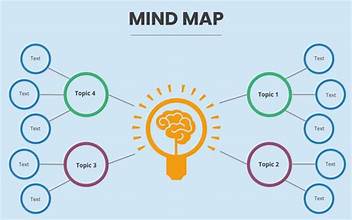Have you ever woken up with a different perspective on a troubling event from the day before? Or found that after a night’s sleep, something suddenly made more sense? Science is beginning to uncover the mysterious and powerful processes that take place in our brains while we sleep, and one of the most fascinating revelations is that the brain doesn’t just rest — it edits and rewrites our life experiences.
According to neuroscientists, sleep isn’t merely a passive state of unconsciousness. It is an active and essential process in which the brain consolidates memories, refines emotions, and sometimes even rewires our understanding of events. This internal “editing” helps us process complex experiences, filter out unimportant details, and better prepare for the next day.
The Brain’s Nightly Job: Editing the Day
Throughout our waking hours, the brain is constantly absorbing a massive amount of information — from conversations and visual scenes to sounds and emotions. Much of this input floods our short-term memory and emotional centers. If the brain were to keep every bit of information unfiltered, it would quickly become overwhelmed. That’s where sleep plays a crucial role.
During various sleep stages — particularly REM (Rapid Eye Movement) and deep slow-wave sleep — the brain sifts through this information, deciding what to keep and what to discard. In this process, known as memory consolidation, the brain strengthens important memories and lets go of irrelevant details. This is similar to editing a document: deleting unnecessary lines, highlighting key points, and sometimes rephrasing content for clarity.
Emotional Healing While You Dream
Emotional processing is another key element of this nocturnal mental housekeeping. Researchers have found that sleep helps to regulate and reset emotional responses. When we sleep, especially during REM sleep, the brain processes emotional experiences, decoupling the emotional charge from the memory. That’s why something that felt intensely upsetting one day may seem less so after a good night’s sleep.
This emotional “rewriting” allows us to gain perspective, build resilience, and make better decisions. In fact, some studies suggest that sleep plays a critical role in overcoming trauma and may be a natural tool in combating anxiety and depression. The brain essentially works like a therapist during the night — helping us make sense of our emotional experiences in a way that’s constructive and less distressing.

Dreams: Glimpses of the Brain’s Editing Process?
Dreams, those vivid and often surreal experiences, are believed to be a byproduct of this editing process. While the exact purpose of dreaming is still under scientific debate, many researchers believe that dreams serve as a simulation space where the brain tests out scenarios, reorganizes memories, and resolves emotional conflicts.
In dreams, bits and pieces of memory get reorganized, mixed with imagination, and played out in symbolic ways. This might explain why we often dream about events that are important, stressful, or unresolved in our lives. It’s the brain’s way of working through these events — rewriting them with new emotional meaning or placing them in a different context.
The Power of Sleep in Learning and Creativity
This editing mechanism isn’t limited to emotional processing — it also affects how we learn and solve problems. Studies have shown that people who sleep after studying retain information better and can even solve complex problems more effectively than those who stay awake.
This happens because the brain not only stores information during sleep but also makes connections between different pieces of knowledge. It reorganizes what you’ve learned, integrates it with what you already know, and often sparks new insights. This is why many people experience “eureka” moments after sleeping on a problem — the brain has been quietly working on it in the background.

Consequences of Poor Sleep: An Unedited Life
On the flip side, lack of sleep disrupts this critical editing process. Without adequate rest, the brain struggles to consolidate memories, leaving us foggy and forgetful. Emotional processing is also impaired, which can lead to heightened stress, irritability, and anxiety.
Chronic sleep deprivation has been linked to poor decision-making, mental health disorders, and even increased risk of neurodegenerative diseases like Alzheimer’s. In a very real sense, skipping sleep is like skipping the brain’s opportunity to organize and make sense of your life.
How to Support Your Brain’s Nightly Rewriting
To get the most out of your brain’s editing process, prioritize good sleep habits:
- Stick to a regular sleep schedule — go to bed and wake up at the same time each day.
- Create a restful environment — dark, quiet, and cool rooms promote deeper sleep.
- Avoid screens before bed — the blue light from devices can interfere with melatonin production.
- Limit caffeine and heavy meals in the evening.
- Practice mindfulness or light reading before bed to help transition into sleep.
Final Thoughts
While we may think of sleep as “downtime,” it’s actually one of the most active and productive states for the brain. From refining memories to softening emotional wounds and solving complex problems, the brain does its best work when we’re asleep. Understanding and respecting this process can help us lead clearer, healthier, and more emotionally balanced lives.
So the next time you wake up with a fresh perspective, remember — your brain’s night shift was hard at work editing the story of your life.



